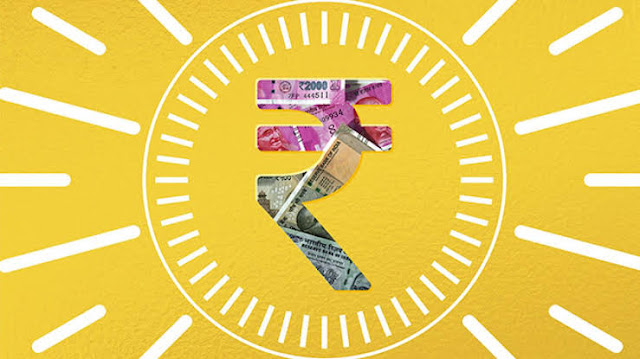Budgetale
Announcing the multi-billion dollar farm, infra and healthcare package to revive growth in the country, Finance Minister Nirmala Sitharaman made all of us skip our lunch with her two-and-a-half hour long Budget Speech. As she ran out of steam, similar to our current economic status, the TV channels spent the next 10 hours with panelists telling the world whether it was a good, bad or a maybe budget. I guess the podium is mine now, so shall we?
With no Big Bang, the consent seemed to be that there were lots of “aspirational ideas” (pun intended) to save the nation, but no clarity on where the rupee was coming from; and whether these schemes would be implemented with the efficiency of abolishing Article 370, or of the messy demonetisation conundrum.
The move by which depositors will be insured up to Rs 5 lakh, up from the previous amount of Rs 1 lakh, under the DICGC, in case a bank fails or goes bankrupt, was another major highlight of the budget which is rather commendable, but in my opinion, should have increased upto 7-8 lacs; but let's just appreciate this growth.
Now, coming to the major part of the budget, which is indeed a contoversial conundrum –the revised income tax slabs. The government introduced a new personal income tax regime, where income tax rates will be reduced but several exemptions will be removed. The new tax regime will be optional and the taxpayers will be given the choice to either remain in the old regime with exemptions and deductions, or opt for the new reduced tax rate without those exemptions. As Sitharamam simplified the regime in her speech, the rest of us are simply left to wonder if it has actually been simplified or if it has been rather made more complicated than ever.
Digging in deeper, the government proposes to sell a part of it's holding in LIC through an initial public offering (IPO). Currently, the government owns the entire 100 percent stake in Life Insurance Corporation of India (LIC). The government is facing criticism – for the obvious reason that LIC is the lifeline of middle class, and also that it is one of the few profit-making Public Sector Undertakings (PSUs).
But huge respects for this one though: Nirmala Sitharaman proposed a 16-point action plan to boost agriculture and farmers’ welfare. She said agricultural services need copious investments and added that the government has insured Rs 6.11 crore farmers under the Pradhan Mantri Fasal Bima Yojna, including air cargo facilities and other transportation facilities, for the agricultural produce to be distributed widely.
This was followed by Rs 99,300 crore budget for the education sector and another Rs 3,000 crore for the skill development for the next fiscal year – along with a boost in the health and sanitation, clean air initiatives, infrastructure and transportation sector. So before we go marching to settle our ‛grahas’ in India's kundali, we should ask ourselves - Why is India broke? The simple answer is because no one, who can help it, pays taxes; and those that can't avoid it, pay as little as possible. Unfortunately, demonetisation, which was implemented to suck all this black money out, only created yet another league of black marketeers, hospitals, petrol stations, bank managers, chemists, etc, while we stood in longer queues in the scorching heat. The rural India gains LPG connections –hence, more money is flowing into that subsidy as the urban middle class supposedly refuse to ‛give it up.’
There were many good ideas in the budget, especially the focus on agriculture –with emphasis on storage, solar farms and trees as the third crop; helping startups, listing of LIC, tax breaks for Foreign Sovereign funds in infrastructure, efforts to deepen the bond market, a short tax settlement option, and a tax payers’ charter for transparency. But if the government wants to be able to really change India, it has to have money on a regular basis and not live on selling assets, whether PSUs or possibly defence land. This money can be successful only if tax collection improves; also not forgetting that GST collections have not quite improved. Indians try and avoid the inconvenience of laws as much as possible. So, unless the situation is black or white, they skate in the grey zone.
Our economy is at its worst in the decade – we cannot let that fact fade away, despite of the comendable political tactics of the Modi goverment. Does India need Manmohan Singh for his statistical charms? Or will this new budget be the turning point of progress for our economy?
Rtr. Zeel Trivedi




I think it has covered all the main points and it is a great blog
ReplyDeleteGreat insights! Especially since it talked about two important steps of this budget, i.e the focus on agriculture with emphasis on cold storage, warehousing and transportation, step towards empowering and making them self-sufficient one step at a time. Glad you agree that tax-payers aren't doing enough and country as a whole needs to address it.
ReplyDeleteThis comment has been removed by the author.
DeleteWowww great thoughts, covered almost all the important points
ReplyDeleteGreat Content Man!!����
ReplyDeleteI didn't know majority of the fact covered here...all of them were new to me!